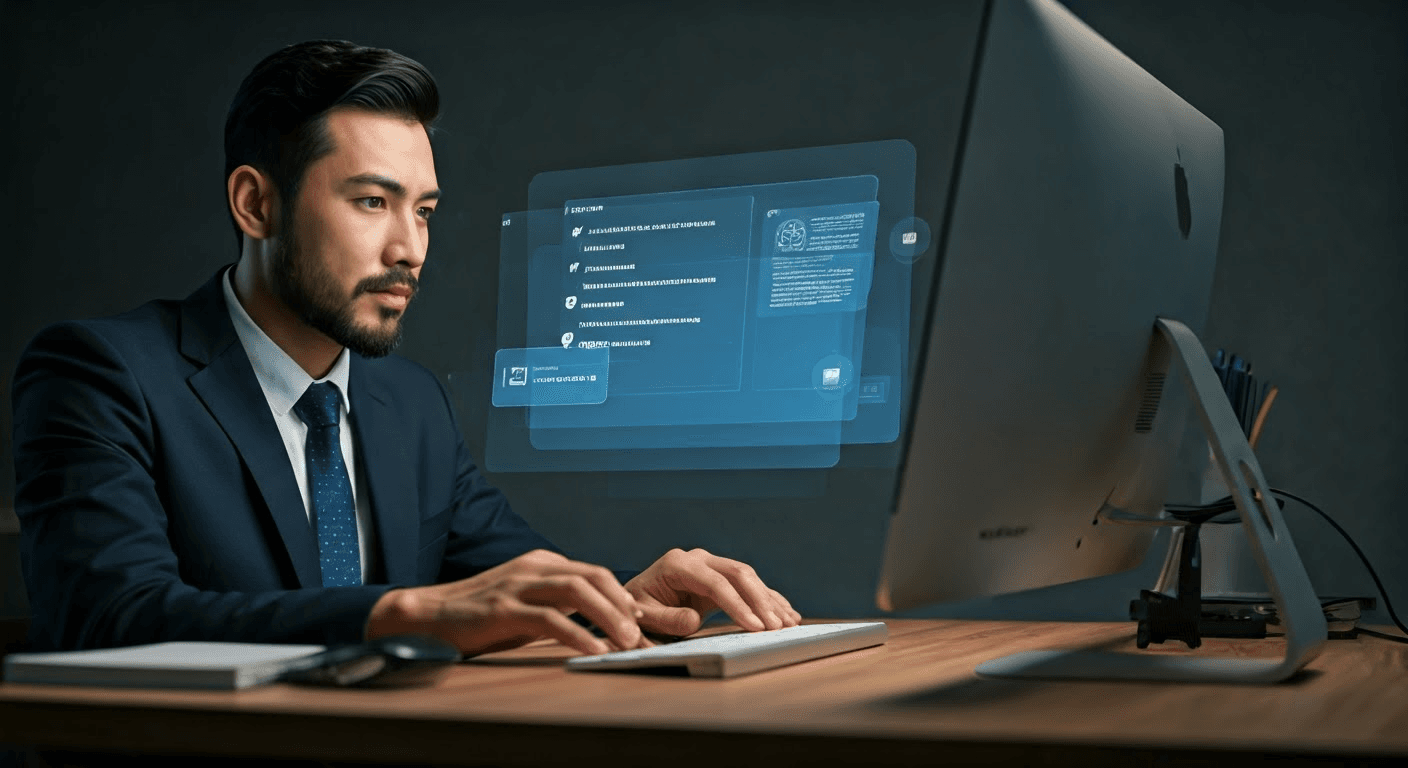AI-Powered Direct Exam Prompts: The Lawyer's Secret Weapon for Killer Questions
- Authors

- Name
- Geeks Kai
- @KaiGeeks

The Game's Changed (And You're About to Level Up)
While most lawyers are still printing emails, the smart ones are already using AI to craft questions that make witnesses spill everything. Think of AI-powered direct exam prompts as your legal cheat code—except it's totally legit and ridiculously effective.
Here's what you're getting:
- AI tools that draft precise questions faster than you can say "objection"
- Prompts that actually work (not the generic stuff everyone's peddling)
- Real strategies that save hours of prep time
- The insider knowledge that separates pros from pretenders
Bottom line? AI isn't replacing lawyers—it's making the good ones unstoppable.
Why AI is Your New Courtroom Wingman

Let's cut through the hype. AI in legal practice isn't about robots taking over—it's about having a research assistant that never sleeps, never misses details, and can analyze thousands of cases while you grab coffee.
The magic happens with something called natural language processing (NLP). Basically, it's AI that actually understands legal language instead of just spitting out random words. Feed it your case materials, witness statements, and relevant precedents, and it'll craft questions that hit different.
The Real Power Move: Generative AI for Direct Examination
Here's where it gets interesting. Generative AI doesn't just find information—it creates content that sounds human. For direct examination, this means:
Smart Question Generation: AI analyzes your case facts and suggests questions you might've missed Pattern Recognition: It spots themes across similar cases and applies them to yours Time Multiplication: What used to take hours now takes minutes
The key is knowing how to talk to these AI tools. That's where prompt engineering comes in—basically, the art of asking AI the right questions to get killer results.
Crafting AI Prompts That Actually Work
Most people treat AI like Google with extra steps. Wrong move. The difference between amateur and pro results? How you structure your prompts.
The Framework That Gets Results
Context First: Give AI the full picture before asking for questions
"I'm preparing direct examination for a personal injury case. Plaintiff is a 32-year-old construction worker who fell from scaffolding due to improper safety equipment. Key issues: employer negligence, extent of injuries, impact on earning capacity."
Specific Objectives: Tell AI exactly what you want each question to accomplish
"Generate 5 questions that establish the defendant's knowledge of safety violations without leading the witness."
Tone and Style: Match your courtroom persona
"Keep questions conversational but professional. Avoid legal jargon that might confuse the jury."
Pro Tips for Question Clarity and Impact
The best direct examination questions follow a simple rule: one fact, one question. Here's how to make AI nail this every time:
- Use Simple Language: "Tell me about the accident" beats "Describe the incident that occurred"
- Build Your Story: Questions should flow like a Netflix series—each one sets up the next
- Stay Focused: Each question targets one specific fact or emotion
Example Prompt:
"Create a sequence of 8 questions that walks the jury through the plaintiff's typical workday before the accident. Focus on establishing routine, safety awareness, and physical capabilities. Keep each question under 15 words."
Real-World Success Stories (The Proof is in the Pudding)

Family law attorneys are crushing it with AI-powered direct exam prompts. One firm reported cutting case prep time by 60% while improving question quality. The secret? Using AI to analyze emotional patterns in custody cases and crafting questions that reveal parental fitness naturally.
Personal injury lawyers are seeing similar wins. AI helps identify the perfect questions to establish pain and suffering without sounding rehearsed. It's like having a focus group of experienced attorneys reviewing every question.
What We've Learned (The Real Talk)
Three years of AI implementation in courtrooms taught us some hard truths:
| Reality Check | What It Means |
|---|---|
| Human oversight is non-negotiable | AI suggests, you decide. Every question needs your legal judgment before it hits the courtroom |
| Garbage in, garbage out | Feed AI weak case facts, get weak questions. Quality input = quality output |
| Transparency wins cases | Be ready to explain your process. Judges and opposing counsel will ask |
The bottom line? AI amplifies your skills—it doesn't replace them.
Your Action Plan (Start Winning Today)
Ready to integrate AI-powered direct exam prompts into your practice? Here's your roadmap:
Week 1: Pick one AI tool designed for legal professionals (avoid generic ChatGPT for sensitive cases) Week 2: Practice with closed cases—refine your prompting technique Week 3: Start using AI for question brainstorming on new cases Week 4: Develop your firm's AI workflow and training protocols
Remember: You're not just adopting technology—you're gaining a competitive edge that most lawyers don't even know exists yet.
The Bottom Line
AI-powered direct exam prompts aren't the future—they're happening right now. While your competition is still doing things the old way, you're crafting questions that hit harder, flow better, and get results.
The lawyers winning cases tomorrow are the ones learning these tools today. Your move.
FAQ (The Questions Everyone's Actually Asking)
What's the secret sauce for AI prompts that actually work?
Specificity beats everything. Don't ask AI to "write good questions"—tell it exactly what you need: witness type, case facts, desired outcome, and question style. The more context you provide, the better your results.
Can AI replace my legal judgment in crafting examination questions?
Not even close. AI is your research assistant, not your replacement. It generates options based on patterns, but you're the one who knows your case, your witness, and your strategy. Always review and adapt AI suggestions.
How does AI make direct examination questions more accurate?
AI analyzes thousands of similar cases and identifies question patterns that work. It spots gaps in your questioning strategy and suggests follow-ups you might miss. Think of it as having every experienced lawyer's playbook at your fingertips.
What are the real limitations of using AI in legal practice?
AI can inherit biases from training data, doesn't understand nuanced case strategy, and can't read a room like you can. It's also not confidential unless you're using legal-specific platforms. Use it for brainstorming, not final decisions.
How can law firms start using AI tools for direct exams without breaking the bank?
Start small with one AI tool focused on legal research and question generation. Train your team on prompt engineering basics. Test with closed cases first. Scale up as you see results and ROI.